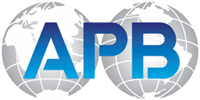)
Susan B. Neuman
Former Asst. Secretary, Secondary & Elementary Education
Susan B. Neuman
Former Asst. Secretary, Secondary & Elementary Education
Biography
Susan B. Neuman is passionate about the science of reading, and how it may support children’s opportunities to learn. Her latest book, the Handbook on the Science of Early Literacy co-authored with colleagues Cabell and Patton-Terry, describes how young children can be nurtured early on to ensure their success in reading development. She is also the author of Giving Our Children a Fighting Chance: Poverty, Literacy, and the Development of Information Capital (2014), which explores the knowledge gap between children from affluent circles and those from poorer neighborhoods and how that gap can be closed by increasing access to literacy resources. She is also the author of such widely read titles as All about words: Vocabulary instruction in the age of Common Core Standards, preK through grade 2 (Teachers College Press, 2013); Changing the Odds for Children at Risk; Educating the Other America (2012); the best-selling Nurturing knowledge: Building a Foundation for School Success with Kathy Roskos; and Reading to your Young Child: A Parent’s guide (with Tanya Wright). She has written over 100 peer-reviewed articles focused on improving the odds of children who live in disadvantaged communities.
She has served on the IRA Board of Directors (2001-2003), and other numerous boards of non-profit organizations, and served as Co-editor of Reading Research Quarterly (2011-2018), ILA flagship research journal. Her research and teaching interests include early childhood policy, curriculum, and early reading instruction, prek-grade 3 for children who live in poverty.
Neuman has received two life-time achievement awards for research in literacy development, and is a member of the Reading Hall of Fame, and a Fellow of the American Educational Research Association. She has authored and edited 12 books, including the Handbook of Early Literacy Research (Volumes I, II, III) with David Dickinson, “Changing the Odds for Children at Risk” (Teachers College Press, 2009) “Educating the Other America” (Brookes, 2008) and “Multimedia and Literacy Development (Taylor & Francis, 2008).
Speech Topics
Literacy Learning in Everyday Spaces
Neighborhood institutions like the laundromat, hair salon, barbershop and grocery stores can be vital places for literacy activities in a community. Neuman has conducted extensive research in these everyday spaces and describes how communities may be an important resource for literacy activities.
Children need knowledge-building opportunities to become successful readers and thinkers. Neuman describes how schools and communities can give children rich opportunities to build background knowledge essential for comprehension.
Is Screen Time a Bad Thing?
Neuman describes the research, and highlights how young children are learning from media.
Children Achieving: Closing the Gap by Starting Early
Experts may be uncertain about many issues, but there is widespread agreement that children who reach kindergarten with certain characteristics – an interest in books, a fondness for conversation, a curiosity about the world – are more likely to thrive in school and lead productive, happy lives. There's been an explosion of knowledge over the last few years about how young children develop, namely how early experiences set the stage for success in learning to read and write. Highlighting the most recent trends and practices in early literacy learning, Neuman shares how we can ensure that all children achieve successfully by “starting early.”
Educating the Other America
In this presentation, Neuman focuses on the significant disparities in children's achievement by income group. She argues that we need more targeted interventions that focus on three qualities:
- Providing additional print resources to children
- Including greater attention to oral language and vocabulary in our programs
- Building relationships with parents

)
)
)
)